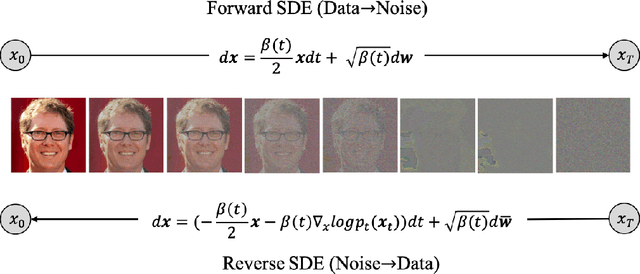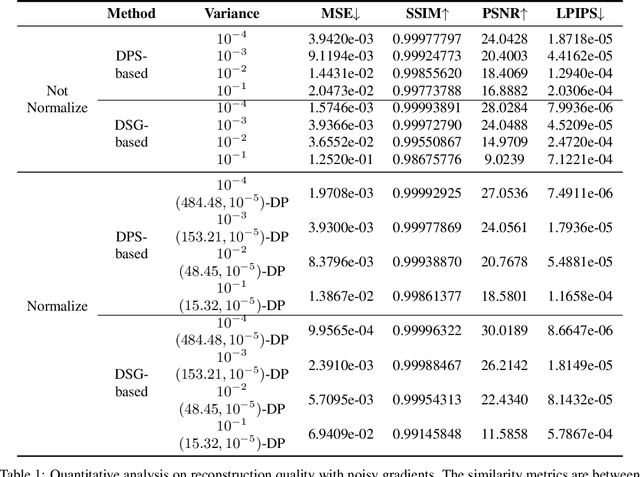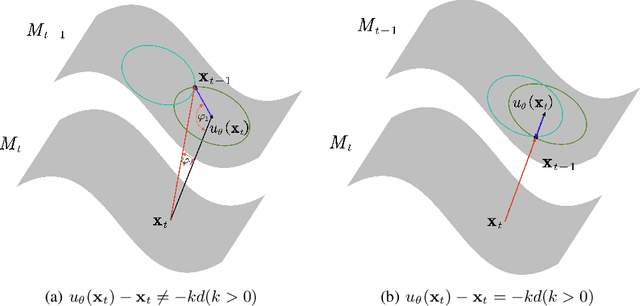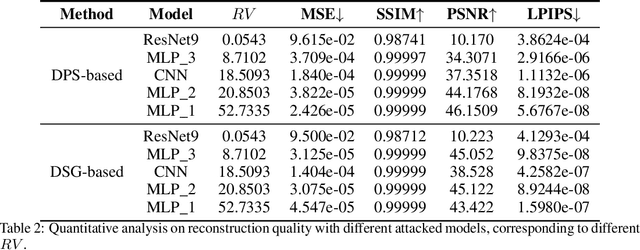Gradient-Guided Conditional Diffusion Models for Private Image Reconstruction: Analyzing Adversarial Impacts of Differential Privacy and Denoising
Paper and Code
Nov 05, 2024



We investigate the construction of gradient-guided conditional diffusion models for reconstructing private images, focusing on the adversarial interplay between differential privacy noise and the denoising capabilities of diffusion models. While current gradient-based reconstruction methods struggle with high-resolution images due to computational complexity and prior knowledge requirements, we propose two novel methods that require minimal modifications to the diffusion model's generation process and eliminate the need for prior knowledge. Our approach leverages the strong image generation capabilities of diffusion models to reconstruct private images starting from randomly generated noise, even when a small amount of differentially private noise has been added to the gradients. We also conduct a comprehensive theoretical analysis of the impact of differential privacy noise on the quality of reconstructed images, revealing the relationship among noise magnitude, the architecture of attacked models, and the attacker's reconstruction capability. Additionally, extensive experiments validate the effectiveness of our proposed methods and the accuracy of our theoretical findings, suggesting new directions for privacy risk auditing using conditional diffusion models.
 Add to Chrome
Add to Chrome Add to Firefox
Add to Firefox Add to Edge
Add to Edge